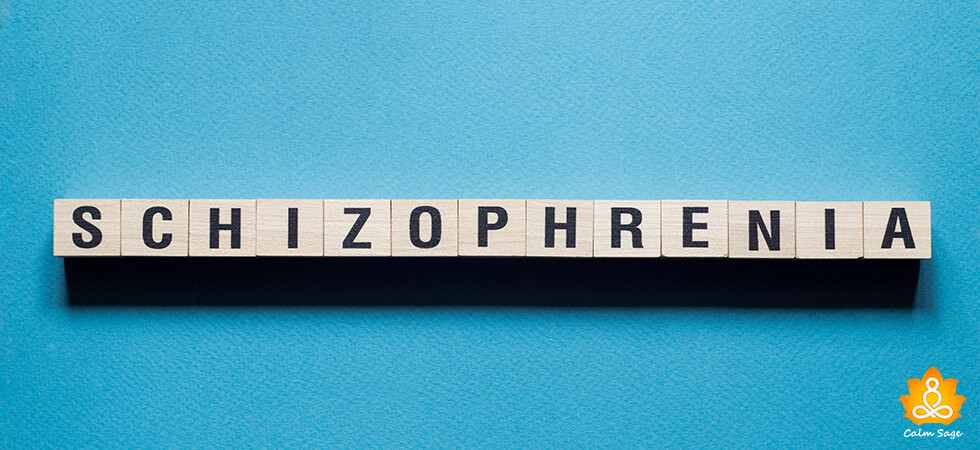Is Avolition A Mental Health Disorder Or Just A Symptom Of One?

Lack of motivation is a real problem but when the lack of motivation or the inability to finish a task becomes too much, or too serious, then it could be termed as “Avolition”.
I get it; motivation is not easy to get – whether it is paying the bills on time or even decluttering your mess – it’s common to drag your feet, but did you know that it could be a symptom of at least three mental health disorders?
If you’re constantly feeling that you want to finish a task, but you can’t find the emotional or mental capacity to do so, then you may be struggling with avolition.
It’s good to finally put a name to this feeling you’ve been experiencing, right? I thought so too.
If left unaddressed, avolition can become a challenge, too overwhelming to overcome, but that’s what we’re here to help you with! I’ve listed the signs of avolition you need to look out for as well as the ways you can treat avolition.
Keep reading to learn more about how you can recognize this lack of motivation as something more and how to treat avolition.
What Does “Avolition” Mean?
Avolition is when you lack certain motivation to do something or complete a mundane yet purposeful task. Rather than being a separate mental health disorder, Avolition is a behavioral symptom of mental health disorders.
It’s a condition where you don’t have the mental strength to finish a task even though it can have serious consequences. For many people, this condition can be too severe and can prevent them from maintaining healthy personal hygiene or even physical appearance.
You might not even know you’re struggling with avolition until someone points it out to you!
Before you confuse avolition with procrastination, let me make you aware of its subtle difference. Procrastination is looking for distractions to put off your tasks but avolition is the complete lack of motivation to finish the task.
Signs You’re Struggling With Avolition
Avolition symptoms can look different for everyone and can affect your life. Remember, it’s more than laziness or procrastination. Here’s how you can know you’re struggling with avolition;
At Home:
- Not getting up from bed for hours
- Allowing clutter to increase
- Skipping hygiene (brushing your teeth, or taking a shower, etc.)
- Not putting things in their rightful place
- Not throwing away takeout or cardboard boxes
- Not being able to meet deadlines or appointments
- Not doing anything but watching the day pass
At Workplace:
- Difficulty starting tasks or projects
- Trouble finishing tasks
- Having an unorganized work desk
- Not being able to hold conversations
- Not having the zeal to work
In Relationships:
- Feeling detached
- Avoiding social activities
- Withdrawing from social interactions
- Ignoring phone calls and texts from friends or loved ones
- Avoiding eye contact with others
- Not being able to hold a steady conversation
Avolition In Mental Health Disorders
Avolition is a very common symptom in at least three mental health disorder;
Avolition in schizophrenia is very common and can fall into the negative symptoms of schizophrenia. It might also coincide with similar symptoms such as;
- Aboulia, the inability to make decisions. A type of apathy
- Alogia, the inability to speak
- Asociality is the inability to be social
You can also find avolition present in other conditions similar to schizophrenia, such as;
- Post-traumatic stress disorder (PTSD)
- Premenstrual Dysphoric Disorder
- Traumatic Brain Injury
- Alzheimer’s
What Can Cause Avolition?
Avolition causes can range from lack of mental stimulation to long-term isolation. There are no certain factors that might indicate the cause of avolition, but researchers suggest that some contributing factors could include;
- Genetics
- Poor brain development
- Imbalance in neurochemicals
- Pregnancy or childbirth complications
While many people confuse avolition with laziness and apathy, it is not. These traits are common personality traits but cannot always be considered major symptoms of a mental health disorder.
With just a few lifestyle changes, laziness and apathy can be chased away, however, that’s not the case with avolition. Avolition, as a symptom of mental health disorder, should be treated with the right diagnosis and treatment plan.
How Can Avolition Be Treated?
Avolition is normally addressed as a symptom of mental health disorder, so depending on the disorder, the treatment for avolition may vary. However, common avolition treatment options can include;
1. Psychotherapy:
One of the most recommended therapy for this condition can be cognitive-behavioral therapy (CBT). CBT can help you identify the causes and thinking that’s preventing you from doing things and replace them with healthy thoughts. This therapy can also help you develop the right coping and social skills.
2. Medications:
Antipsychotic medications or antidepressants might be prescribed to treat avolition. However, some medications can make avolition worse, so make sure you check in with your doctor regularly.
3. Brain Stimulation:
If medications can’t help, then doctors may also recommend certain brain stimulation therapies such as electroconvulsive therapy.
4. Self-Care:
Your doctor can also suggest that you make certain lifestyle changes to improve your life quality. Here are some changes you can make to cure avolition;
- Eat a healthy diet
- Get at least 7-9 hours of sleep each night
- Try journaling or other self-reflection exercises
- Spend time with your loved ones
- Spend time in nature
- Adopt mindfulness or meditation to your routine
- Create a schedule or list of chores to help you manage your tasks
Final Words
If you’re not careful, then avolition can affect almost every aspect of your life – from personal life to professional and from academic to social. Even everyday activities like waking up in the morning might look like too much work.
Remember that it’s not your fault, it could be a sign of an underlying mental health disorder. With the right diagnosis and treatment, you can address avolition or the mental health disorder that’s affecting your normal routine.
Avolition is a symptom more than it’s a mental health disorder, but it’s still curable with the right therapy or medication. If your avolition is not severe, then some thoughtful lifestyle changes can help you overcome it.
I hope this article helped you. For more, you can write to us at info@calmsage.com or DM us on social media. You can also share your thoughts in the comments below.
Take Care!




















